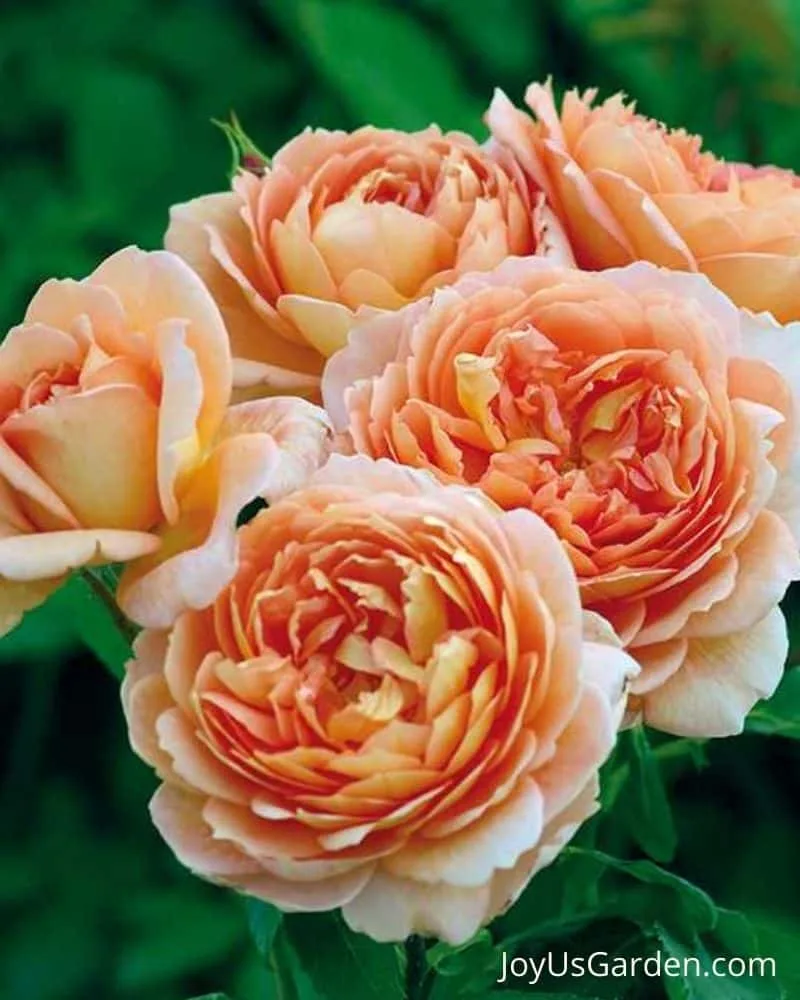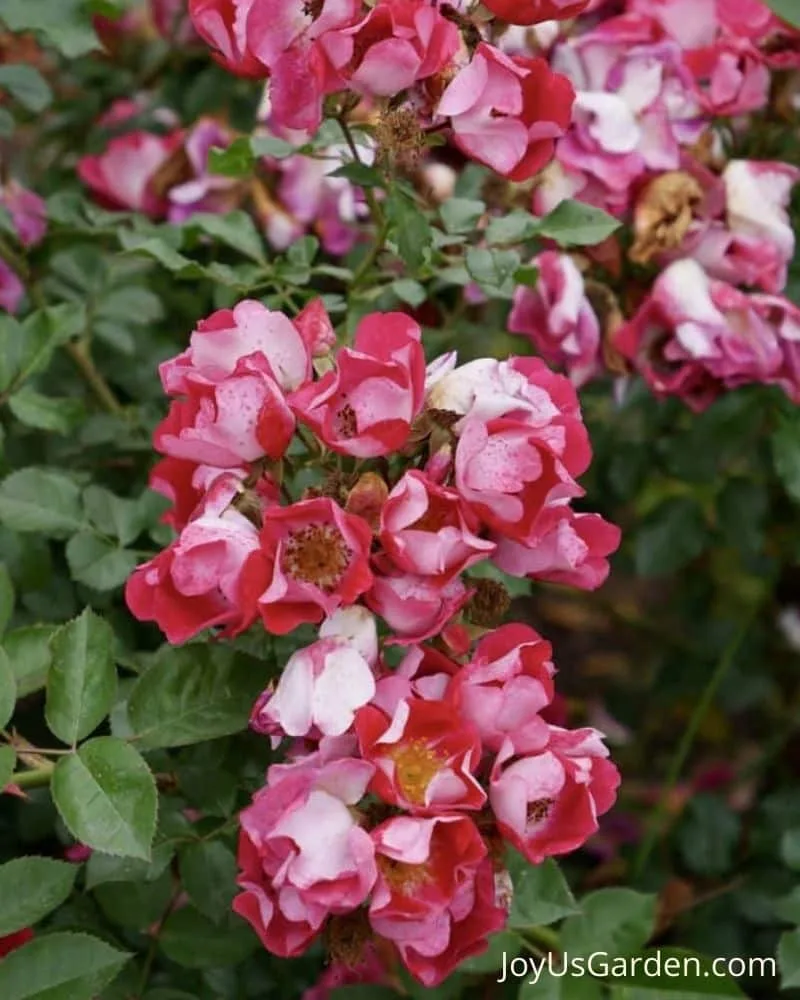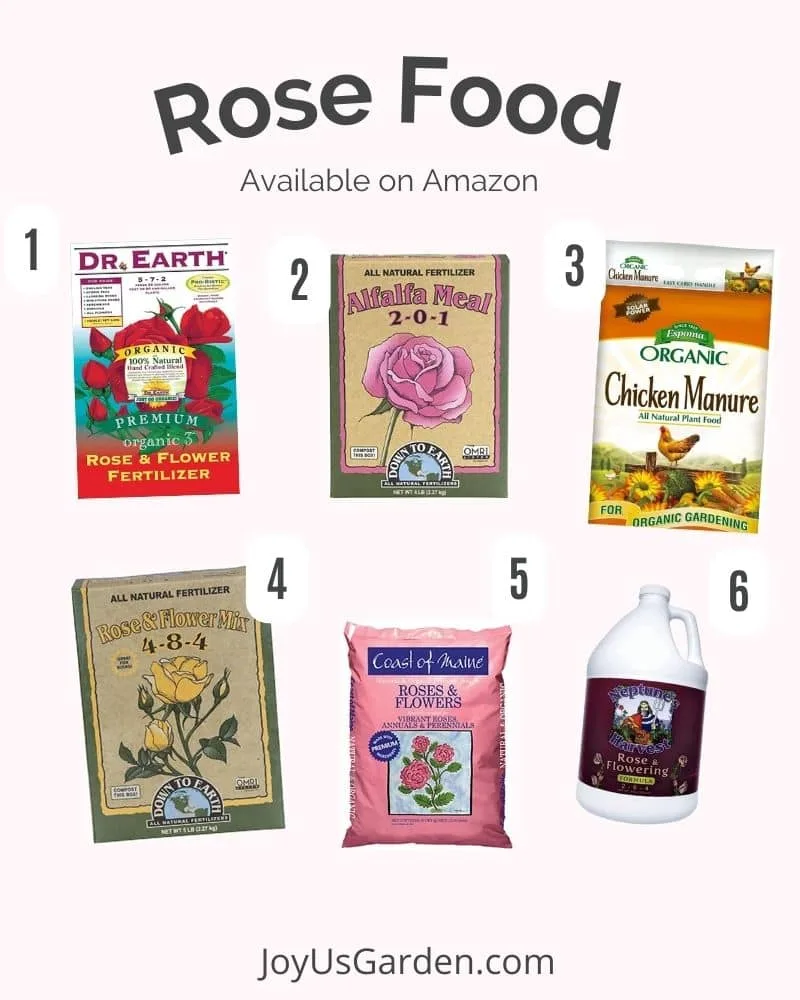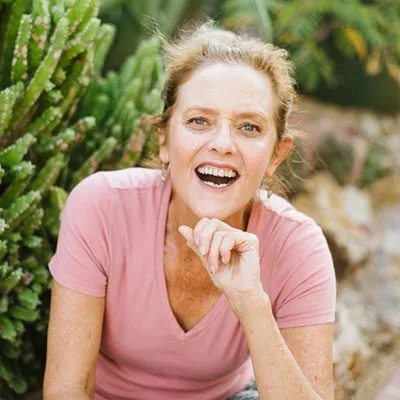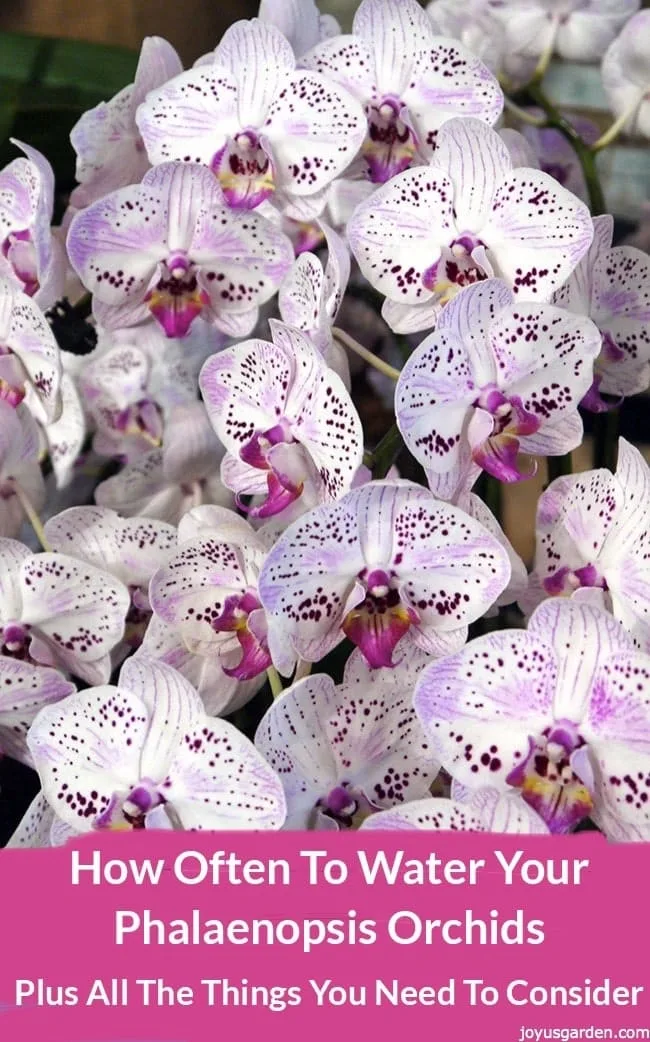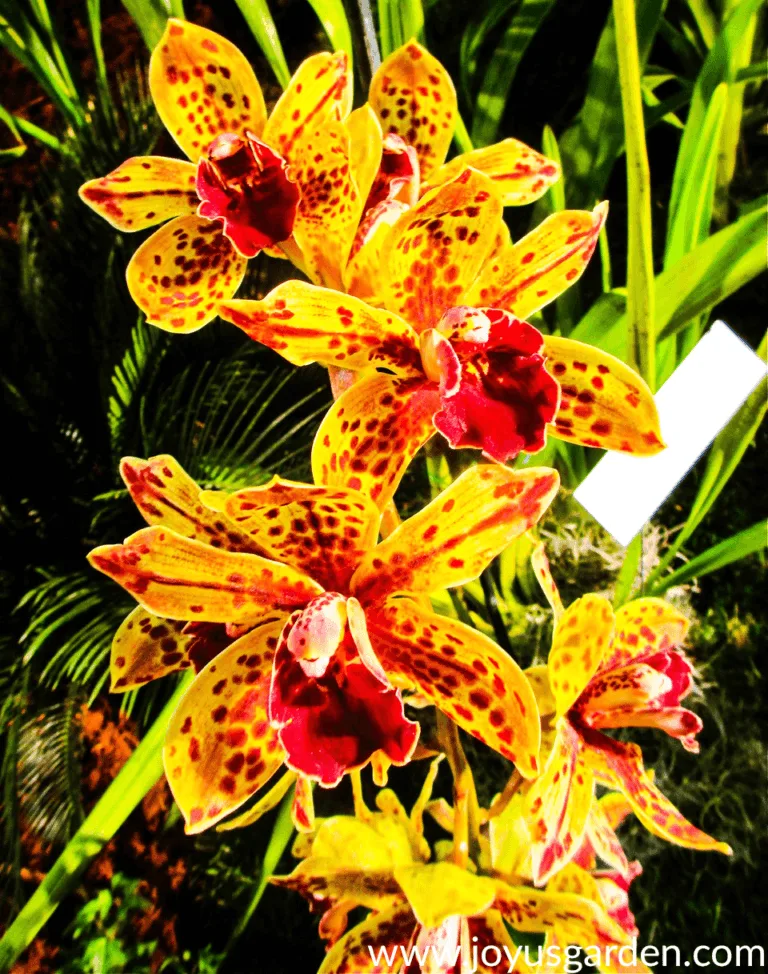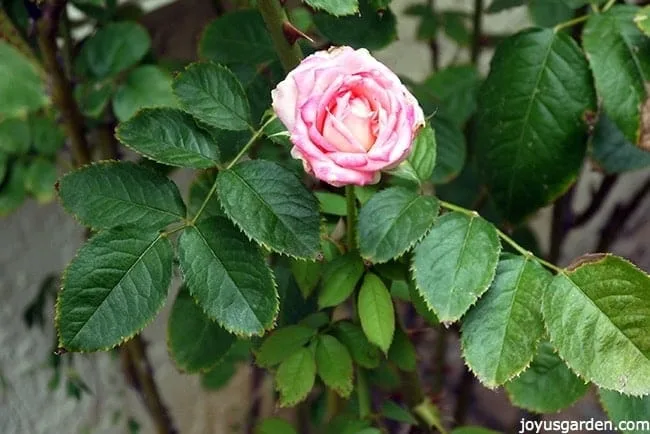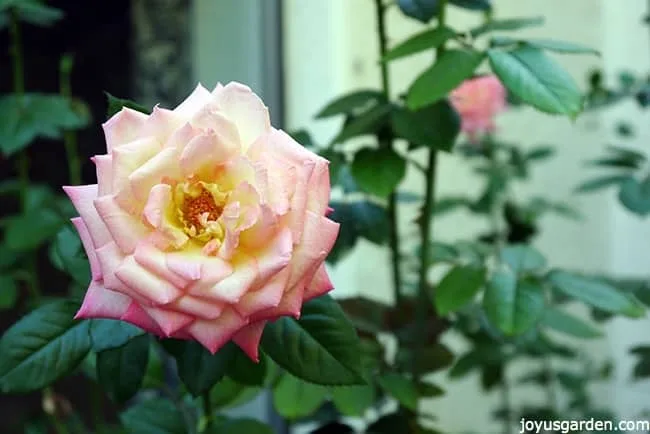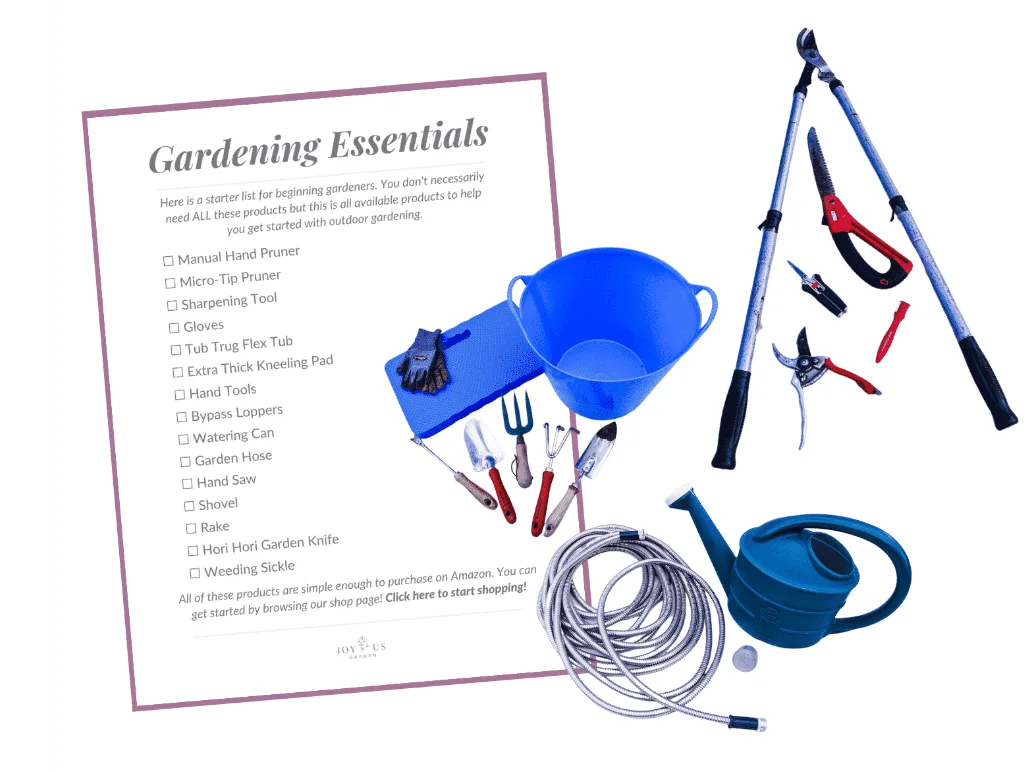Answering Your Questions About Fertilizing Roses & Feeding Roses
In this installment of our monthly series we’ll be listing the top questions we get asked about fertilizing roses and feeding roses. This lovely perennial is quite beloved and provokes romance and beauty. To get swoon-worthy flowers it’s important that you are fertilizing and feeding during the growing season.
You’ve asked how to fertilize roses to keep them looking their best. This post will be dedicated to answering the 10 most frequently asked questions. Plus, at the end of this post, we have a collage detailing products we recommend to keep your roses looking good as well as links to buy them.
Roses can be found in nearly every color and a variety of types. There are over 150 species of roses and thousands of hybrids so you can surely find 1 (or 20!) that you love.
Our Q & A series is a monthly installment where we answer your most common questions on caring for specific plants. Our previous posts cover Christmas Cactus, Poinsettia, Pothos, String Of Pearls, Lavender, Star Jasmine, Fertilizing & Feeding Roses, Aloe Vera, Bougainvillea, Snake Plants.
Common Questions About Fertilizing Roses & Feeding Roses
1.) What is the best thing to feed roses? What is the best fertilizer for roses?
The best thing to feed roses that I’ve found is a mixture of chicken manure or compost, rose and flower food, and alfalfa meal. I was a professional gardener for many years and this combo always yielded healthy roses with beautiful blooms.
The best fertilizer is a matter of preference but you need one formulated for roses and flowers. See the collage at the end of the post for options to buy.
Related: The Best Way To Feed Roses Organically & Naturally
2.) When should you feed roses? When is the best time to fertilize roses?
When you feed or fertilize roses depends on your growing zone. For instance, in the Bay Area where I was a professional gardener, I would start to fertilize in early March. Growing up in New England my father wouldn’t start to feed/fertilize roses until mid to end of May.
You want to start feeding when you see the new growth starting to emerge. You don’t want to fertilize too early because this will force out new growth that could be hit by a freeze. Use this link to determine your plant hardiness zone and then you can look up when to fertilize in that zone.
Related: Flower Friday: White Roses, Flower Friday: Yellow Roses, Flower Friday: Pink Roses
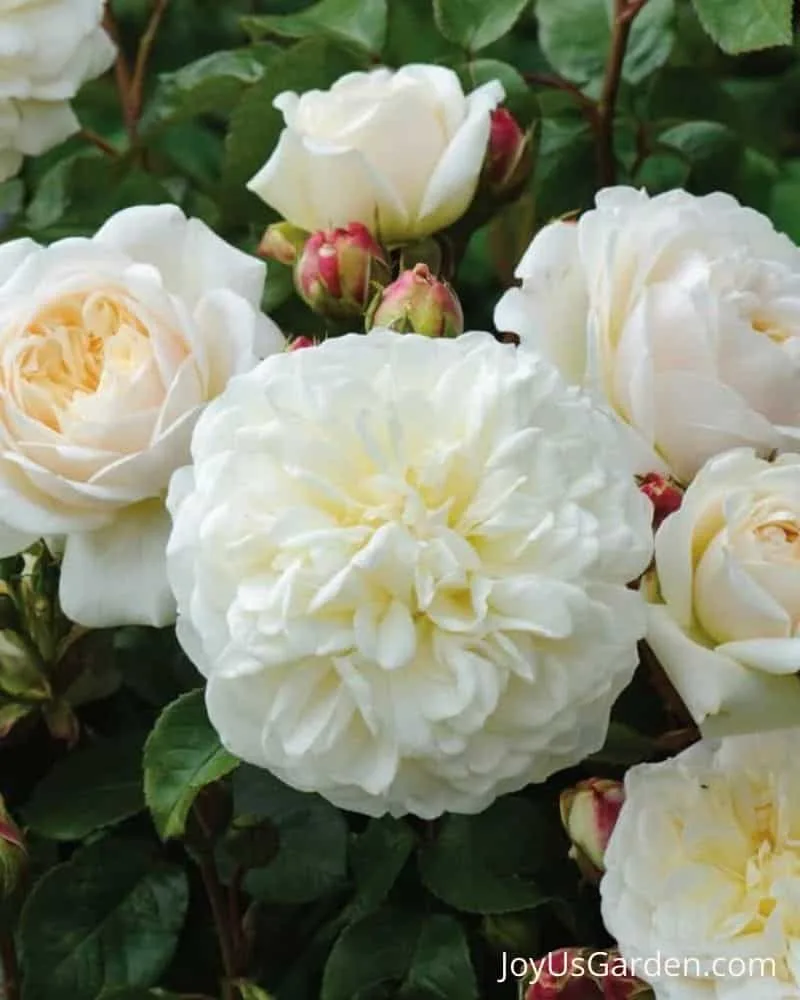
3.) How often should you feed and fertilize rose bushes? Can you over-fertilize roses? Should I feed roses weekly?
How often depends on how long your growing season is. Here in Tucson I would fertilize and feed my rose 3-4 my rose times a year. Same with my roses in Santa Barbara. If you have a shorter growing season it could be 2-3 times a year.
Check the packaging on your fertilizer to see the frequency they recommend. An organic powder or granular fertilizer breaks down slower than a liquid fertilizer so you will be using the latter more often.
Yes, you can over-fertilize roses. Many fertilizers contain salts that can burn the roots. It can also cause the plant to produce too much new growth which could weaken it over time.
I wouldn’t use a fertilizer weekly. If you’re feeding roses with something mild like banana or eggshell tea, you could use that weekly.
4.) How do you fertilize roses? How do you put fertilizer on roses?
I fertilize roses by digging a shallow, circular trench around the base, working the food into that trench, and covering it back up with soil. Then, I’d water it in well. Roses have a taproot (the root system isn’t extensive) so you don’t need to go that far out from the base.
If you prefer to use a foliar method to feed your roses, we have included recommended fertilizers at the end of this post. Foliar feeding is an option to make the foliage more beautiful, rather than the roots absorbing it and benefiting the overall health of the plant.
Related: How To Prune Roses, Pruning Hybrid Tea Rose
5.) Do roses like coffee grounds? Are eggshells good for roses? Are banana skins good for roses? How to fertilize roses with Epsom salt?
Roses do like all those options as they can help to boost plant growth. However, they shouldn’t be a substitute for rose and flower foods because they don’t provide the NPK roses need to grow healthy and bloom.
Coffee grounds can provide some nitrogen. Eggshells can provide calcium that helps the structure of plants and bananas yield potassium which helps with roots. If you use Epsom salts, you can work them into the soil. This is a source of magnesium which helps keep the foliage pretty. Even though these are “natural” foods, use them in moderation because too much or too often can burn the roots.
Keep in mind that by working something into the ground like banana peels you could be attracting critters (ants, flies, etc).
6.) What kind of fertilizer do roses need?
Roses need a specific rose and flower food that is formulated with nitrogen, phosphorus, and potassium as well as other ingredients they need to thrive. You’ll find rose foods we like at the end of this post if you’re interested in buying some online.
Here are some of our gardening guides you may find helpful:
- 7 Things To Think About When Planning A Garden
- How To Successfully Plant Shrubs In The Garden
- How To Successfully Plant Perennials
- How To Prepare and Plant A Flower Bed
- How to Feed Camellias With Great Success
- Clean And Sharpen Your Pruning Tools
7.) How do you feed roses naturally? How do you make homemade rose food?
To feed roses naturally, you would want to be using organic ingredients. People make rose food using different ingredients so you can find many DIY recipes online.
My preferred method is to use 1 part alfalfa meal, 1 part rose and flower food, 1 part compost, and 1 part worm compost or composted chicken manure. How much you use per rose depends on its size and age.
More on organic flower gardening: Organic Flower Gardening: Good Things To Know
8.) How late in the year can you fertilize roses? Should I fertilize roses in winter?
You stop fertilizing roses in mid-August to late September depending on your climate zone. Make sure to stop feeding 2 months before the first freeze. Roses use a lot of energy flowering all season long so they need a rest period.
You never want to fertilize roses in the winter because this is their time of dormancy.
9.) How do fertilize roses in pots?
The same way you fertilize a rose in the ground is the same way as in pots except you would alter the amount. There isn’t as much soil mass in a pot so you could apply too much fertilizer and burn the roots. The box will tell you the amount to use.
Related: Roses We Love For Container Gardening
10.) Do you fertilize roses when you plant them?
I always planted bare root roses with a good amount of compost and made sure they were well watered in. About a month later, I would begin the fertilizing/feeding routine. If planting a rose later on in the season, you can apply fertilizer at half strength when planting.
Bonus: How do you keep roses healthy?
You keep roses healthy by making the right choice of rose (some are stronger, some flower more than others, some have healthier foliage, some do better in pots, etc), giving them the 5-6+ hours of sun a day that most need, providing regular water, pruning properly, and feeding as needed for your growing zone.
- Dr Earth Fertilizer // 2. Down To Earth Alfalfa Meal // 3. Espoma Chicken Manure // 4. Down To Earth Fertilizer // 5. Coast Of Maine Compost Soil // 6. Neptunes Foliar Feed
I hope the answers to these questions about fertilizing and feeding roses have helped you out. Roses are gorgeous plants that so many of us love to fawn over.

Check out our other Q & A installments: Snake Plants, Bougainvillea, Aloe Vera
